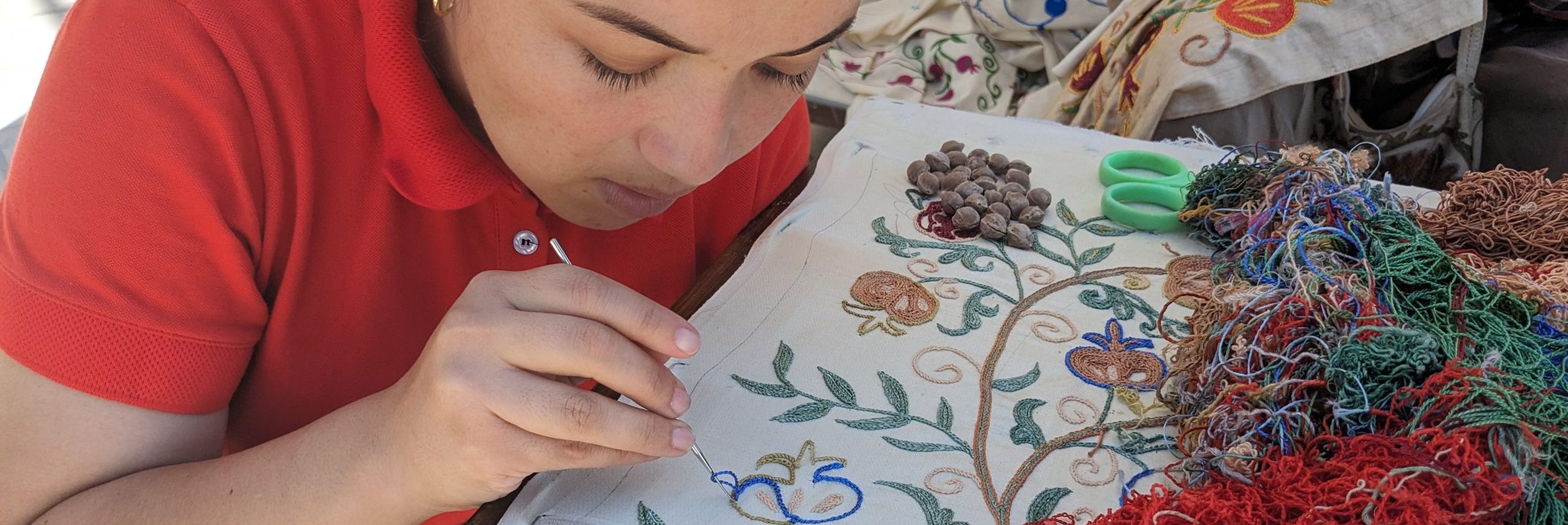

Welcome to Bukhara, a city where history isn’t confined to textbooks; it lives in every cobblestone, every archway, and every smile you’ll encounter on its ancient streets. But what is it that makes Bukhara so extraordinary? Is it the tantalizing aroma of Plov filling the air, the rhythm of craftsmen at work, or the echoing call to prayer from the Kalyan Minaret? The truth is, it’s a blend of all these elements, woven into the cultural, culinary, and linguistic fabric of the city.

Uzbek is the official language, and like the Uzbek people themselves, it’s warm and inviting. Russian is also spoken and understood, especially by the older population. Whether you’re bargaining in the bazaars or seeking directions to the next historical site, knowing a few phrases in Uzbek can turn a polite nod into a hearty handshake and an invitation for tea.
Plov is to Uzbekistan what pasta is to Italy. A delectable medley of rice, meat, and vegetables, Plov isn’t just food; it’s an experience. You’ll often see it being cooked in massive cauldrons, enough to feed a small army. The dish is communal, often shared with friends, family, and sometimes even strangers.
🗣️ Language Tip: Asking “Plov bor ekanmi?” (“Is there Plov?”) in any eatery will not only satiate your hunger but also win you favor among locals.
In Bukhara, traditional craftsmanship isn’t just preserved; it’s an active, breathing part of community life. Young apprentices work under the tutelage of masters in trades like:
Bukhara is famous for its intricate, hand-knotted carpets. A single carpet can take months to complete.
Whether it’s crafting a simple bowl or a complex mosaic, the clay artists of Bukhara are unmatched in their skill.
From delicate jewelry to robust tools, Bukhara’s metalworkers forge history into every piece.
A form of art that requires extreme precision and patience, often depicting tales from folklore or Islamic scripture.
🗣️ Language Tip: The term ‘Usto’ refers to a master craftsman. Expressing interest in their trade by saying, “Usto, ishingizni ko’rsatishingiz mumkinmi?” (“Master, can you show me your work?”) is a great way to engage.
This massive fortress, with its sprawling courtyards and museums, gives you a glimpse into the city’s regal past.
Imagine an oasis surrounded by ancient madrasas and teahouses. A perfect place for rest and contemplation.
One of the oldest Islamic structures in Central Asia, the mausoleum is a marvel of architectural brilliance.
🗣️ Language Tip: Learn directional phrases in Uzbek like “Bu qayerga boradi?” (“Where does this go?”) to navigate easily.
Bukhara is more than just a tourist destination; it’s a living classroom. From the language that welcomes you into its fold to the Plov that warms your soul, and the masters who enrich your understanding of craftsmanship — Bukhara invites you to partake in its centuries-old traditions. So why just travel when you can learn, engage, and become a part of a story that has been told over millennia?
Rahmat for sharing your time with us, and we hope to share a cauldron of Plov with you in Bukhara someday soon!
Note: Always remember, the language of humanity transcends all, and in Bukhara, you’ll often find that a smile is worth a thousand words. Happy travels! 🌏